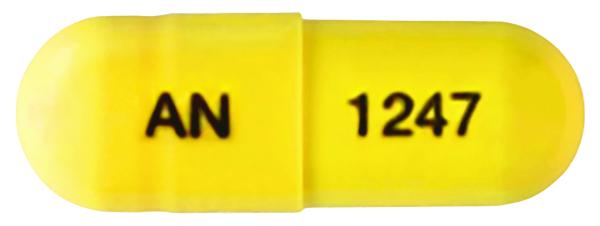Donepezil / Memantine Side Effects
Medically reviewed by Drugs.com. Last updated on Aug 25, 2024.
Applies to donepezil / memantine: oral capsule extended release.
Precautions
It is important that your doctor check your progress at regular visits. This is necessary to allow dose adjustments and to reduce any unwanted effects.
Before you have any kind of surgery, dental treatment, or emergency treatment, tell the medical doctor or dentist in charge that you are using this medicine. Taking memantine and donepezil combination together with certain medicines that are used during surgery or dental or emergency treatments may increase the effects of those medicines and cause unwanted effects.
Tell you doctor right away if you have bloody or black tarry stools, constipation, severe stomach pain, or vomiting of blood or material that looks like coffee grounds. These may be symptoms of stomach or bowel bleeding.
Some people who have used this medicine developed problems such as nausea, severe vomiting, loss of appetite, diarrhea, and weight loss. Talk with your doctor before using this medicine if you have any concerns.
If you think that you or someone else may have taken an overdose of this medicine, get emergency help at once. Taking an overdose of this medicine may cause convulsions (seizures) or serious effects on your heart and your breathing. Signs of overdose include increased watering of mouth, increased sweating, low blood pressure, muscle weakness, severe nausea, severe vomiting, slow heartbeat, and troubled breathing.
Do not take other medicines unless they have been discussed with your doctor. This includes prescription or nonprescription (over-the-counter [OTC]) medicines and herbal or vitamin supplements.
Serious side effects
Along with its needed effects, donepezil / memantine may cause some unwanted effects. Although not all of these side effects may occur, if they do occur they may need medical attention.
Check with your doctor immediately if any of the following side effects occur while taking donepezil / memantine:
Incidence not known
- bloody or black, tarry stools
- chest pain or discomfort
- decreased urination
- lightheadedness, dizziness, or fainting
- pain in the lower abdomen, groin, upper back or sides
- seizures
- severe stomach pain
- slow or irregular heartbeat
- sweating
- trouble breathing
- unusual tiredness
- vomiting of blood or material that looks like coffee grounds
Other side effects
Some side effects of donepezil / memantine may occur that usually do not need medical attention. These side effects may go away during treatment as your body adjusts to the medicine. Also, your health care professional may be able to tell you about ways to prevent or reduce some of these side effects.
Check with your health care professional if any of the following side effects continue or are bothersome or if you have any questions about them:
Incidence not known
- constipation
- decreased appetite
- diarrhea
- nausea
- vomiting
See also:
For healthcare professionals
Applies to donepezil / memantine: oral capsule extended release, oral kit.
General adverse events
The most common adverse reactions in patients receiving memantine ER were headache, diarrhea, and dizziness. The most common adverse reactions in patients receiving donepezil were diarrhea, anorexia, vomiting, nausea, and ecchymosis.[Ref]
Nervous system
Memantine:
- Common (1% to 10%): Headache, dizziness, somnolence
Donepezil:
- Common (1% to 10%): Headache, dizziness, somnolence
- Postmarketing reports: Convulsions, neuroleptic malignant syndrome[Ref]
Gastrointestinal
Memantine:
- Common (1% to 10%): Diarrhea, constipation, abdominal pain, vomiting
- Postmarketing reports: Pancreatitis
Donepezil:
- Very common (10% or more): Diarrhea (10%)
- Common (1% to 10%): Vomiting, anorexia, nausea
- Postmarketing reports: Abdominal pain, pancreatitis[Ref]
Respiratory
Memantine:
- Common (1% to 10%): Influenza[Ref]
Cardiovascular
Memantine:
- Common (1% to 10%): Hypertension, hypotension
- Postmarketing reports: Congestive cardiac failure
Donepezil:
- Common (1% to 10%): Hypertension, hemorrhage, syncope
- Postmarketing reports: Heart block (all types)[Ref]
Dermatologic
Memantine:
- Postmarketing reports: Stevens Johnson Syndrome
Donepezil:
- Common (1% to 10%): Eczema
- Postmarketing reports: Rash[Ref]
Hematologic
Memantine:
- Postmarketing reports: Agranulocytosis, leukopenia (including neutropenia), pancytopenia, thrombocytopenia, thrombotic thrombocytopenic purpura
Donepezil:
- Common (1% to 10%): Ecchymosis
- Postmarketing reports: Hemolytic anemia[Ref]
Hepatic
Memantine:
- Postmarketing reports: Hepatitis
Donepezil:
- Postmarketing reports: Cholecystitis, hepatitis[Ref]
Metabolic
Donepezil:
- Common (1% to 10%): Increased creatinine phosphokinase, dehydration, hyperlipidemia
- Postmarketing reports: Hyponatremia[Ref]
Musculoskeletal
Memantine:
- Common (1% to 10%): Back pain
Donepezil:
- Common (1% to 10%): Back pain[Ref]
Other
Memantine:
- Common (1% to 10%): Increased weight
Donepezil:
- Very common (10% or more): Accident (13%), infection (11%)
- Common (1% to 10%): Fever, pain, chest pain[Ref]
Psychiatric
Memantine:
- Common (1% to 10%): Anxiety, depression, aggression
- Postmarketing reports: Suicidal ideation
Donepezil:
- Common (1% to 10%): Insomnia, nervousness, hallucinations, hostility, depression, confusion, emotional lability, personality disorder
- Postmarketing reports: Agitation, confusion, hallucinations[Ref]
Renal
Memantine:
- Common (1% to 10%): Urinary incontinence
- Postmarketing reports: Acute renal failure
Donepezil:
- Common (1% to 10%): Urinary incontinence[Ref]
References
1. (2015) "Product Information. Namzaric (donepezil-memantine)." Forest Pharmaceuticals
More about donepezil / memantine
- Check interactions
- Compare alternatives
- Pricing & coupons
- Reviews (8)
- Drug images
- Dosage information
- During pregnancy
- Drug class: cholinesterase inhibitors
- En español
Patient resources
- Donepezil and memantine drug information
- Memantine and donepezil (Advanced Reading)
- Memantine and Donepezil
Other brands
Professional resources
Other brands
Related treatment guides
Further information
Donepezil/memantine side effects can vary depending on the individual. Always consult your healthcare provider to ensure the information displayed on this page applies to your personal circumstances.
Note: Medication side effects may be underreported. If you are experiencing side effects that are not listed, submit a report to the FDA by following this guide.

